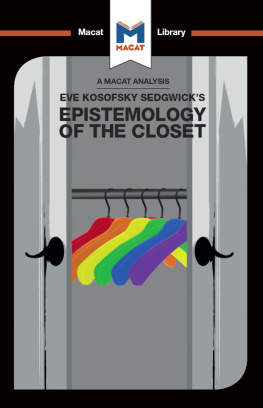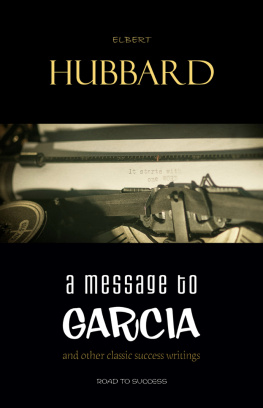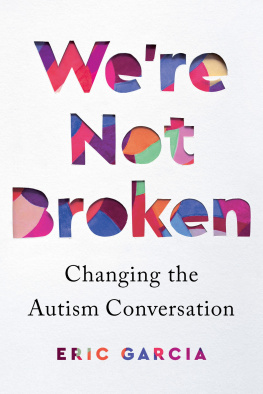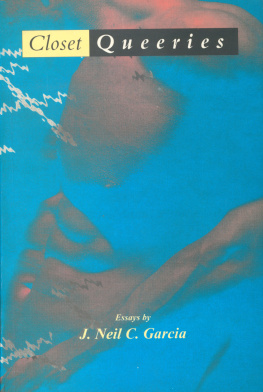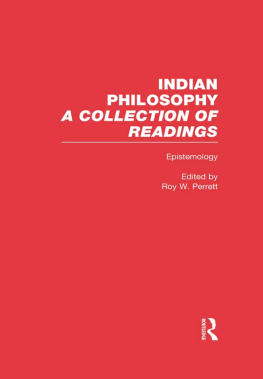Christien Garcia - Eve Kosofsky Sedgwicks Epistemology of the Closet
Here you can read online Christien Garcia - Eve Kosofsky Sedgwicks Epistemology of the Closet full text of the book (entire story) in english for free. Download pdf and epub, get meaning, cover and reviews about this ebook. year: 2018, publisher: TaylorFrancis, genre: Romance novel. Description of the work, (preface) as well as reviews are available. Best literature library LitArk.com created for fans of good reading and offers a wide selection of genres:
Romance novel
Science fiction
Adventure
Detective
Science
History
Home and family
Prose
Art
Politics
Computer
Non-fiction
Religion
Business
Children
Humor
Choose a favorite category and find really read worthwhile books. Enjoy immersion in the world of imagination, feel the emotions of the characters or learn something new for yourself, make an fascinating discovery.
- Book:Eve Kosofsky Sedgwicks Epistemology of the Closet
- Author:
- Publisher:TaylorFrancis
- Genre:
- Year:2018
- Rating:3 / 5
- Favourites:Add to favourites
- Your mark:
- 60
- 1
- 2
- 3
- 4
- 5
Eve Kosofsky Sedgwicks Epistemology of the Closet: summary, description and annotation
We offer to read an annotation, description, summary or preface (depends on what the author of the book "Eve Kosofsky Sedgwicks Epistemology of the Closet" wrote himself). If you haven't found the necessary information about the book — write in the comments, we will try to find it.
Eve Kosofsky Sedgwicks Epistemology of the Closet — read online for free the complete book (whole text) full work
Below is the text of the book, divided by pages. System saving the place of the last page read, allows you to conveniently read the book "Eve Kosofsky Sedgwicks Epistemology of the Closet" online for free, without having to search again every time where you left off. Put a bookmark, and you can go to the page where you finished reading at any time.
Font size:
Interval:
Bookmark:


Sedgwicks
of the Closet
Christien Garcia

The Macat Library is a series of unique academic explorations of seminal works in the humanities and social sciences books and papers that have had a significant and widely recognised impact on their disciplines. It has been created to serve as much more than just a summary of what lies between the covers of a great book. It illuminates and explores the influences on, ideas of, and impact of that book. Our goal is to offer a learning resource that encourages critical thinking and fosters a better, deeper understanding of important ideas.
Each publication is divided into three Sections: Influences, Ideas, and Impact. Each Section has four Modules. These explore every important facet of the work, and the responses to it.
This Section-Module structure makes a Macat Library book easy to use, but it has another important feature. Because each Macat book is written to the same format, it is possible (and encouraged!) to cross-reference multiple Macat books along the same lines of inquiry or research. This allows the reader to open up interesting interdisciplinary pathways.
To further aid your reading, lists of glossary terms and people mentioned are included at the end of this book (these are indicated by an asterisk [*] throughout) as well as a list of works cited.
Macat has worked with the University of Cambridge to identify the elements of critical thinking and understand the ways in which six different skills combine to enable effective thinking.
Three allow us to fully understand a problem; three more give us the tools to solve it. Together, these six skills make up the PACIER model of critical thinking. They are:
ANALYSIS understanding how an argument is built
EVALUATION exploring the strengths and weaknesses of an argument
INTERPRETATION understanding issues of meaning
CREATIVE THINKING coming up with new ideas and fresh connections
PROBLEM-SOLVING producing strong solutions
REASONING creating strong arguments
To find out more, visit WWW.MACAT.COM.
The deconstructive and poststructuralist methods Sedgwick uses in her examination of the homo/heterosexual definition are closely tied to the critical skills of creative thinking and interpretation. Deconstruction is a postmodern mode of analysis that seeks to undo binaries and hierarchies of meaning in order to reveal the underlying assumptions of a text or belief. Similarly, poststructuralism seeksin a necessarily paradoxical wayto dismantle the sign systems that make meaning possible, thus offering new ways of thinking. Sedgwick uses deconstructive and poststructuralist techniques to complicate and build upon the work of Michel Foucault, whose work on relations of power, discourse, and sexuality is itself exemplary of postmodern practices of creative thinking and interpretation. Specifically, Sedgwick expands, and in a sense inverts, Foucaults famous thesis that homosexuality is an invention of modern disciplinary power. In Epistemology of the Closet, she shows how it is, in fact, the conceptual distinction between gay and straightas unstable as it isthat produces the patterns and relations of modern thoughti.e., that homosexual definition is the basis, rather than merely the product, of disciplinary meaning. This playing with the sequentiality of homosexual definition and modern thought (what came first, the chicken or the egg?) is a good example of Sedgwicks formidable skill in postmodern modes of critical thinking and interpretation.
Eve Kosofsky Sedgwick (19502009) was an American scholar, poet, and artist. Sedgwick is known for applying her training in literary criticism to investigate questions of desire, intimacy, and power, and she is perhaps most famous for her foundational contributions to the field of Queer Theory. Her textured analyses of literary texts and social relations have earned her a prominent place in the arenas of cultural studies, critical theory, and gender and sexuality studies. Her books include
Next pageFont size:
Interval:
Bookmark:
Similar books «Eve Kosofsky Sedgwicks Epistemology of the Closet»
Look at similar books to Eve Kosofsky Sedgwicks Epistemology of the Closet. We have selected literature similar in name and meaning in the hope of providing readers with more options to find new, interesting, not yet read works.
Discussion, reviews of the book Eve Kosofsky Sedgwicks Epistemology of the Closet and just readers' own opinions. Leave your comments, write what you think about the work, its meaning or the main characters. Specify what exactly you liked and what you didn't like, and why you think so.

